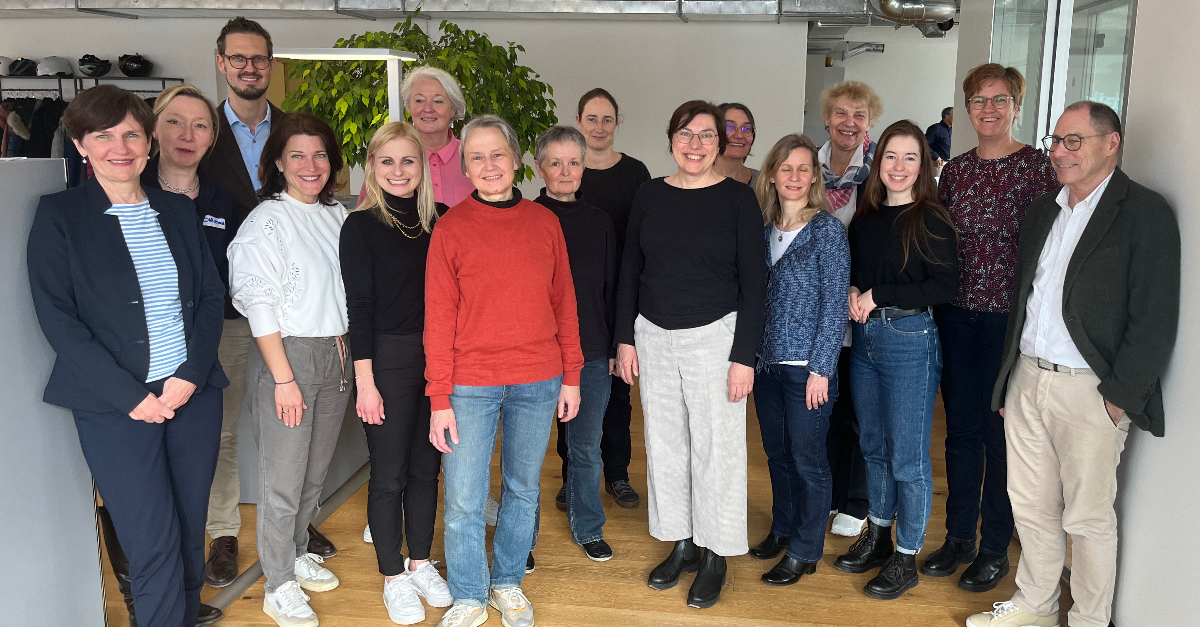In mid-March, education experts from the German Institute for Adult Education (DIE), the Austrian Academy of Continuing Education (WBA) and SVEB met for an exchange in Zurich. Topic: professionalisation of adult education.
Hans-Peter Karrer
The education experts from Germany, Austria and Switzerland (the DACH region) point out an identical basis in their work: the qualifications, professional competences and professional commitment of the trainers are key success factors for the quality of adult education.
When it comes to training and certifying trainers, however, the three countries have different approaches. The main purpose of the meeting from 11th to 13th March 2024 in Zurich was to exchange and discuss the relevant concepts and, in this way, to obtain feedback and benefit from experiences.
Social developments with implications for adult education
Adult education organisations are facing major social and also economic developments. Essentially, these are digitalisation with the trend towards using artificial intelligence, the changing behaviours and expectations of target groups, the more flexible labour market and the increasing demands on trainers. This also includes the shortage of skilled labour that already exists today.
A planned study by SVEB aims to answer corresponding questions about these developments, for example how well the existing training qualifications and the associated competences of teachers meet the demand on the labour market. The German Institute for Adult Education (DIE) is already able to present the initial results on these topics in a comprehensive research project on ‘Professionalising and promoting the competence development of teachers in adult and continuing education’. By evaluation the situation, the aim is, for instance, to show the professional qualifications and technical competences as well as the employment and income situation of trainers in adult education.
Different concepts with the same intention
The exchange focused on the different approaches of the three organisations involved in the exchange, all of which support the training and certification of teachers in adult education:
- The Austrian Academy of Continuing Education (WBA) has a recognised and structured system for certifying and awarding diplomas to employees in adult education (trainers, education managers, etc.), which offers an evaluation of the situation and recognition of both formally acquired and non-formally and informally acquired competences.
- The German Institute for Adult Education (DIE) works with a sophisticated and widely tested competence model (GRETA) to recognise the individual competences of trainers. GRETA represents a reference framework covering different areas of adult education and provides teachers with a structure for reflecting on and assessing their pedagogical/andragogical competences. It also offers providers guidance for the development and selection of staff. In some cases, the competence model is also used as institutional recognition in terms of certification.
- The Swiss Federation for Adult Learning (SVEB) has developed a three-stage, highly formalised system known as the ToT modular system. These are modularised training courses with recognised qualifications at all levels. The entire system is currently being restructured and adapted to market trends. The modules of level 2 of the modular system have already been newly developed, and the innovative professional examination with a task-led performance dossier and a reflection interview with test subjects is currently being trialled. The equivalence assessments of all modules at level 2 also exist in draft form and will be available in a few weeks.
New network
The presentation of the concepts, the open discussion among the education experts and the clear commitment of everyone were seen as rewarding all round. This also includes the generous sharing of experience and the critical questions that fell on fertile ground as food for thought for already existing or newly developed concepts. It was therefore only natural that there was an increasing desire to not end the collaboration after the three days. In future, the cooperation between the three institutions will be continued as part of a newly established ‘Professionalisation network in the DACH region’.

